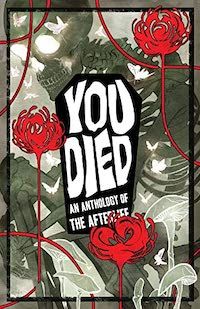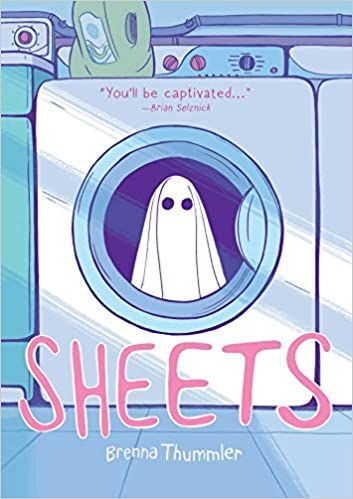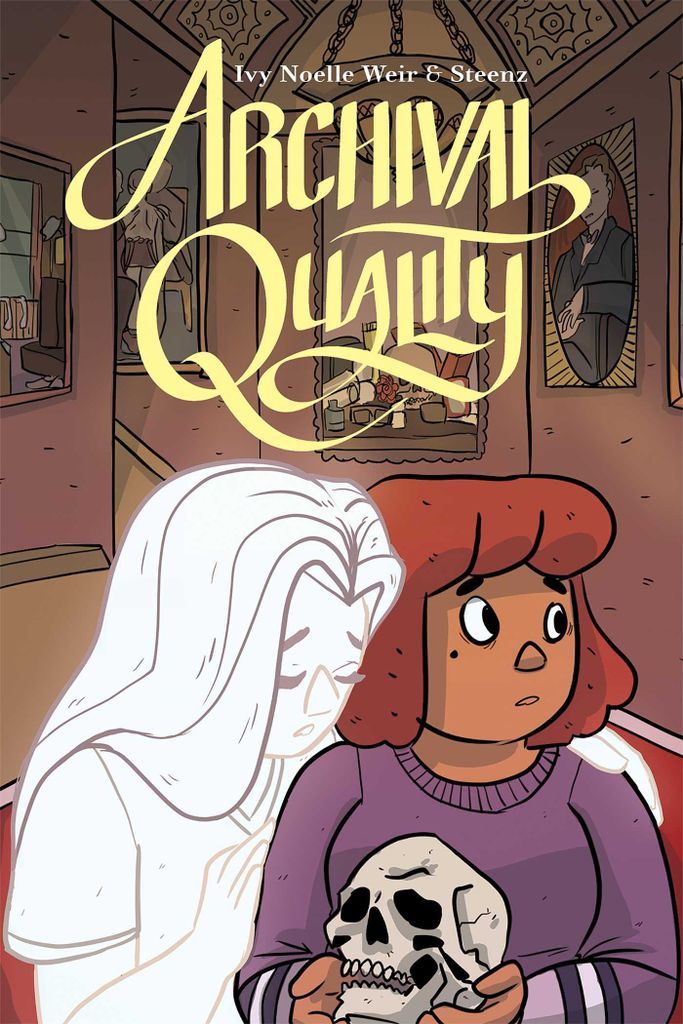For people who need help with suicidal thoughts, here is the link to the Suicide Prevention Hotline and the LGBTQ+ Suicide Prevention Hotline. The Press is known for independent comics and licensed franchise comics. They publish everything from Scott Pilgrim to the Tea Dragon Society. The press also released Sheets and Pilu of the Woods. Brenna Thummler’s Sheets explores issues of sadness and loneliness, while Mai K. Nguyen’s Pilu of the Woods deals with anger management and grief. C. Spike Trotman is publisher and cartoonist of Iron Circus, which started in 2007 and is based in Chicago. Iron Circus is known for anthologies covering a variety of topics from death, weed, travel, fairy tales, and erotica like YOU DIED: An Anthology of the Afterlife. The press also publishes fiction and nonfiction narratives like Jon Allen’s Julian in Purgatory. Importance of Discussing Mental Health in Comics I asked both why it is so important to talk about mental health in comics. Jones said, “It’s important to talk about mental health in general. It’s that removing that stigma, and keeping it from continuing to be something that is really just looked down upon.” He explained that he himself has had to struggle with mental health issues and he has always tried to be very transparent about those issues, “so that folks know that they’re not alone; no matter how cool somebody’s job is.” Trotman added, “In my opinion, mental health is part hygiene and self care, like making sure that you’re aware of your mental health. Like being aware of your limits, aware of your vulnerabilities, and aware of when you’ve had enough and you need a break.” We need to be able to look after ourselves because otherwise, we won’t function just like if we don’t take care of other parts of our bodies. Jones agreed about the intimacy of the art form with even just one person communicating their ideas through the medium to the reader. I wondered also about the visibility of thought and speech balloons as well. Jones added that “one of the biggest powers that comics has is the abstraction… that abstraction makes people and figures more relatable, it’s easier to see yourself in them. Comics are such an excellent tool for just visual literacy in general.” He thinks the power lies not just in seeing people’s thoughts but also being able to see themselves in the body language of characters, and how they interact with people. That allows people to empathize in new ways, he said. Jones added, “the journeys of those characters are so meaningful and so reflective of the struggles that so many people have today. I think that even though the books have a much different type of narrative, it still does a lot of work in the same areas.” While mental illness is intertwined with various works in Iron Circus, Trotman brought up two texts. The first is YOU DIED: An Anthology of the Afterlife that explores our relationship with our own mortality both in terms of our own deaths as well as those of our loved ones. She appreciates the spectrum of stories about death from self-harm to memorializing loved ones, even if it is illegal… Jones added that even superheroes are not monolithic in how they treat mental illness. He pointed out that some Marvel comics can be “a little bit more relationship driven and a little bit more character driven. You have all the same issues in Batman, but if you flip that over and look at Spider-Man throughout his career, that’s all about Peter struggling with mental illness and depression and the weight of the responsibilities and everything else. So I think it depends on the book, superhero stuff has such a wide content catch. It really depends on which specific eras or works you’re talking about.” Trotman added, “It’s incredibly important that things are tackled in a way that doesn’t stigmatize, stereotype, or rely on sort of fantastical and sensationalized interpretations” of mental illness. It’s damaging both for readers to understand what is going on as well as people who might be facing similar mental health issues and being further harmed by the depiction. People need to do the right research and work with sensitivity readers to make sure the depictions are based on reality. Jones concluded, “You have a community and that you’re not alone. There are other folks that have experienced things similar to what you have and there are resources there.” Thank you so much to both Spike Trotman and James Lucas Jones for speaking with me on this important topic. For people who want more suggestions on comic books about mental health, check out this list of 6 comics books that explore mental health and more comic books about mental health for Mental Health Awareness month.


